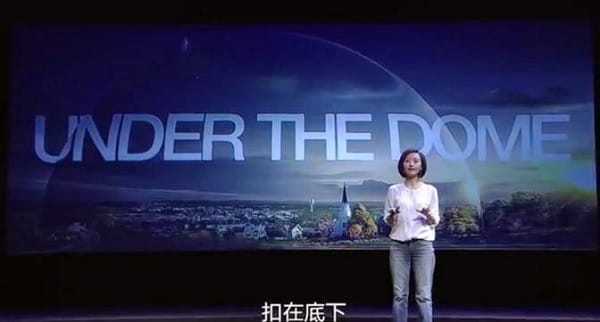Former state TV news anchor and journalist Ms Chai Jing’s documentary “Under the Dome” has enjoyed much fanfare among the Chinese public as well as their political leaders, including Minister Chen Jining from the Ministry of Environmental Protection. The minister was quoted as saying that the documentary would “encourage efforts by individuals to improve air quality”.
The state’s initial endorsement of Ms Chai’s work, which puts a harsh spotlight on China’s long-running public health and environmental crisis, was uncharacteristic. Within days of its release, the video scored more than 200 million views, but was then removed from major Chinese websites, possibly by censors who grew uncomfortable with its virality.
Still, more than 200 million out of China’s 642 million internet users – or approximately one in three – would have seen it, assuming that most of them watched it only once. The Chinese leadership is aware that it has to face up to the issue or risks losing its legitimacy to rule.
In her self-financed investigative documentary, Ms Chai drew on her research, data visualisation, interviews with various stakeholders, site visits and personal experiences to present the severity of China’s air pollution issue. She identified the coal, oil and steel industries as major contributors to the persistent smog.
“We always hear that China is still a developing country and that environmental protection is a luxury we cannot afford”, Ms Chai said in the video. But she added that while industrialisation and urbanisation are “unavoidable reality”, environmental protection remains urgent and necessary for the sake of public health.
The Chinese leadership has thankfully shown growing commitment to environmental protection. At the National People’s Congress on March 6, Chinese premier Li Keqiang stressed the need for strict enforcement to ensure that environmental crimes are duly punished. He also announced plans for significant cut-backs on major pollutants. The country would also aim to reduce coal consumption by 160 million tons over the next five years and double the use of cleaner energy.
With political longevity tied to how well they clean up the toxic air, we can expect Chinese leaders to move faster on the issue.
Image Credit: Chai Jing




